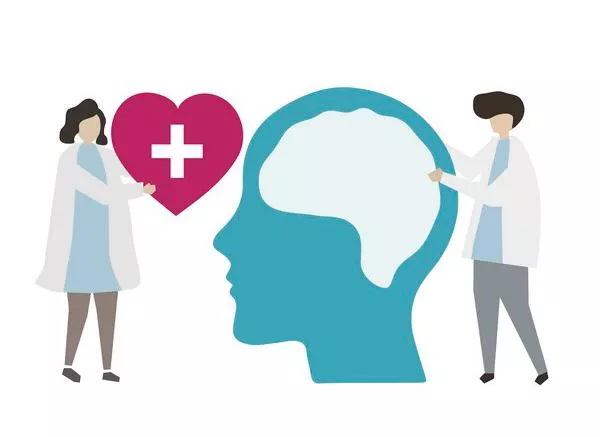Social anxiety is a common mental health condition characterized by an intense fear of social interactions and being judged or scrutinized by others. It can lead to avoidance of social situations, physical symptoms like sweating and trembling, and significant distress in daily life. Fortunately, there are proven strategies to manage and overcome social anxiety. In this article, we’ll explore 13 effective ways to cope with social anxiety and improve your confidence in social settings.
1. Practice Deep Breathing Techniques
When anxiety strikes, your body enters “fight or flight” mode, leading to rapid breathing and increased heart rate. Deep breathing exercises can help calm your nervous system.
Try the 4-7-8 technique: Inhale for 4 seconds, hold for 7 seconds, and exhale for 8 seconds.
Diaphragmatic breathing: Place a hand on your abdomen and breathe deeply, ensuring your stomach rises rather than your chest.
Practicing these techniques regularly can help you stay composed in anxiety-inducing situations.
2. Challenge Negative Thoughts
Social anxiety often stems from irrational fears, such as “Everyone will think I’m stupid” or “I’ll embarrass myself.” Cognitive Behavioral Therapy (CBT) techniques can help reframe these thoughts.
Identify negative beliefs: Write down anxious thoughts before a social event.
Question their validity: Ask yourself, “What’s the evidence for this thought?” and “What’s a more realistic perspective?”
Replace them with positive affirmations: Instead of “I’ll mess up,” tell yourself, “I’m prepared and capable.”
3. Gradually Face Your Fears (Exposure Therapy)
Avoiding social situations reinforces anxiety. Instead, gradual exposure can help desensitize you to fear.
Start with low-pressure interactions (e.g., smiling at a stranger).
Progress to moderate challenges (e.g., making small talk with a coworker).
Eventually tackle bigger fears (e.g., speaking in public).
Each success builds confidence and reduces anxiety over time.
4. Improve Your Social Skills
Sometimes, social anxiety arises from feeling unprepared in conversations. Practicing social skills can boost confidence.
Maintain eye contact (without staring).
Practice active listening by nodding and asking follow-up questions.
Prepare conversation starters (e.g., “How was your weekend?”).
Joining a public speaking group like Toastmasters can also provide a supportive environment to practice.
5. Limit Caffeine and Alcohol
Stimulants like caffeine can worsen anxiety symptoms by increasing heart rate and jitteriness. Alcohol, while sometimes used as a social crutch, can lead to rebound anxiety.
Opt for herbal tea or decaf coffee before social events.
Stay hydrated with water to reduce physical anxiety symptoms.
6. Use Relaxation Techniques
Progressive muscle relaxation (PMR) and mindfulness meditation can reduce overall anxiety levels.
PMR: Tense and release each muscle group from toes to head.
Mindfulness meditation: Focus on the present moment without judgment. Apps like Headspace or Calm can guide you.
7. Focus on Others, Not Yourself
Anxiety often comes from excessive self-focus (“Do I look nervous?”). Shifting attention outward can ease discomfort.
Ask questions to engage others.
Listen actively instead of overthinking your responses.
Observe your surroundings to stay grounded.
8. Prepare for Social Situations
Feeling unprepared can heighten anxiety. Planning ahead can help.
Rehearse introductions or talking points.
Arrive early to familiarize yourself with the environment.
Have an exit strategy (e.g., “I’ll stay for 30 minutes, then reassess”).
9. Join a Support Group
Connecting with others who experience social anxiety can reduce feelings of isolation.
Look for local or online support groups (e.g., through Anxiety and Depression Association of America).
Share experiences and learn coping strategies from peers.
10. Exercise Regularly
Physical activity reduces stress hormones and releases endorphins, improving mood and anxiety levels.
Aerobic exercise (running, swimming) is particularly effective.
Yoga combines movement with mindfulness, reducing tension.
11. Get Enough Sleep
Lack of sleep exacerbates anxiety. Prioritize 7-9 hours of quality sleep per night.
Establish a consistent sleep schedule.
Avoid screens before bed and create a relaxing bedtime routine.
12. Seek Professional Help
If social anxiety significantly impacts your life, therapy or medication may be beneficial.
Cognitive Behavioral Therapy (CBT): Highly effective for social anxiety.
Medication: SSRIs (e.g., sertraline) or beta-blockers (for performance anxiety) may be prescribed.
A mental health professional can tailor treatment to your needs.
13. Be Kind to Yourself
Overcoming social anxiety is a process. Celebrate small victories and avoid self-criticism.
Acknowledge progress, no matter how small.
Practice self-compassion: Remind yourself that everyone feels anxious sometimes.
Final Thoughts
Social anxiety is manageable with the right strategies. By incorporating these 13 techniques—such as deep breathing, gradual exposure, and professional support—you can reduce anxiety and feel more confident in social situations. Remember, progress takes time, so be patient with yourself.
Would you like additional tips on a specific technique? Let us know in the comments!
You Might Be Interested In:

